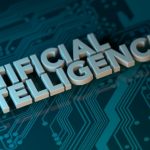A new idea from Elon Musk aims to outlast current digital trends by archiving human knowledge through Grokipedia and sending it into space. Instead of focusing only on terrestrial audiences, Musk and his company xAI are setting their goals higher by preserving an open-source encyclopedia in orbit and on other celestial bodies. This project prompts reflection on how humanity stores and protects collective knowledge for the long term, especially as digital information grows increasingly vulnerable to technological shifts and disasters.
Similar initiatives, such as NASA’s Voyager Golden Record, tried to represent human experience for the cosmos, but their capacity and scope were limited by the technologies and cultural priorities of their era. Musk’s current plan with Grokipedia introduces open-source, large-scale, and ongoing curation powered by AI, contrasting sharply with both the static and symbolic nature of earlier projects. Unlike those analog records, the Grokipedia launch focuses on maintaining active and evolving content shaped by computational advances. Public reaction to these announcements shows ongoing fascination with the preservation of human achievement, but questions remain over accessibility, relevance, and sustainability across time and space.
How Does Grokipedia Aim to Preserve Knowledge?
Musk’s proposal involves embedding the Grokipedia database onto stable oxide materials and deploying these archives in space locations such as Earth orbit, the Moon, and Mars. By using materials designed to withstand harsh conditions, Grokipedia could endure long after terrestrial data centers fail. The encyclopedia’s underlying framework is structured to collect, store, and protect a broad spectrum of knowledge, underlining Musk’s emphasis on future-proofing human information.
“The goal here is to create an open source, comprehensive collection of all knowledge.”
Musk wrote this as he detailed his vision for Grokipedia’s role in safeguarding human history beyond Earth’s atmosphere.
What Sets Grokipedia Apart from Wikipedia?
Grokipedia’s model is distinct because it prioritizes AI-driven curation rather than human moderation. xAI’s Grok powers the platform, automatically gathering and summarizing sources, which supporters argue allows a more impartial approach to organizing information. Traditional wikis depend on human editors and are often subject to bias and disagreement. This machine learning model addresses calls for more neutrality in knowledge repositories, as evidenced by early praise from figures like Wikipedia co-founder Larry Sanger, who noted Grokipedia’s promising balance and coverage.
“It’s already better than Wikipedia,”
Musk said, expressing confidence in his new platform’s capabilities during its V0.1 launch.
Will Archived Knowledge Remain Accessible and Up to Date?
Because Grokipedia is envisioned as open source and constantly updated by AI, its archives could continuously expand with new discoveries and corrections. This adaptability seeks to ensure that stored knowledge remains relevant rather than frozen in time. However, the technical logistics and reliability of updating extraterrestrial archives present challenges. Ensuring that off-planet copies are both accessible to future explorers and accurately reflective of evolving knowledge will be a critical test for the initiative.
Setting Grokipedia apart from previous efforts to preserve knowledge, Musk’s approach offers a living, learning archive, but raises practical considerations around durability, ongoing curation, and transmission across vast distances. The initiative expands the discussion about long-term stewardship of collective wisdom, inviting further debate on balancing accessibility, bias, and accuracy for future civilizations. For those interested in archiving or digital preservation, Grokipedia’s open-source AI-driven model illustrates both the innovative potential and unresolved issues when fusing modern technologies with enduring human concerns.
- Grokipedia will be archived in space to preserve human knowledge.
- xAI’s Grok aims to provide an AI-based, neutral alternative to Wikipedia.
- Long-term accessibility and bias remain concerns for future knowledge preservation.










